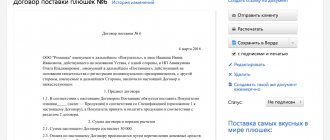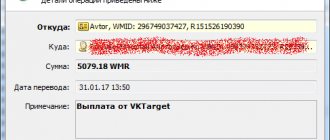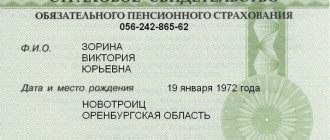What to spend money on
The organization's expenses are not always paid with funds from its current account. In some cases, it may be necessary to issue funds to the employee on account. Such cases include:
- Economic needs of the organization (for example, purchase of goods, work or services);
- Business trip (when the employee is given daily allowance, as well as money for travel and accommodation);
- Entertainment expenses.
The basis for issuing funds from the cash register is one of the following documents:
- an employee’s application containing a director’s visa containing the amount of issue, as well as the period for which it is allowed to be issued;
- the manager's order to issue funds will be reported.
In order for the organization to be indicated as the buyer in the documents issued to the accountable employee when purchasing goods, in addition to the accountable funds, the employee must be given a power of attorney.
Advance report
The employee who received the money must account for it, that is, submit an advance report. The report must be submitted within three working days from the date (subclause 6.3 of clause 6 of the Directive, clause 26 of the “Regulations on business trips”, approved by Decree of the Government of the Russian Federation of October 13, 2008 No. 749):
- expiration of the period for which the money was issued;
- returning from a business trip;
- returning to work (for example, after vacation or illness, if the deadline for issuing money fell during this period).
Documents confirming expenses (for example, sales and cash receipts) must be attached to the report. The advance report is presented to the chief accountant or accountant, and in their absence - to the manager.
The person to whom the advance report is presented checks the intended use of funds, the availability of supporting documents, the correctness of their execution and the calculation of amounts. After this, the expense report is approved by the manager. The period during which the verification of this report, its approval and final payment is carried out is established by the head (subclause 6.3, clause 6 of the Directive). After approval of the advance report, the accountable amounts are written off. However, it happens that the employee spent less or more money than he received on the report. What to do in these cases?
Less spent
To accept the remaining money, the chief accountant should draw up and sign a cash receipt order, which, in particular, reflects the amount of money being returned.
Spent more
After approval of the advance report by the head of the organization, the overexpenditure should be returned to the employee using a cash receipt order, the details of which are entered in the advance report.
If the money is not returned
If the advance report is not approved or the balance is not returned, then the money can be withheld from the salary (Article 137 of the Labor Code of the Russian Federation). To do this you should:
- obtain the employee’s consent to withhold the appropriate amount (if the employee does not agree to the withholding, the money can be recovered through the court);
- within a month from the date of expiration of the period established for the return of accountable funds, issue an order from the head of the organization to withhold (if you miss the deadline, you will have to recover the money in court);
- familiarize the employee with the order (letter of Rostrud dated 08/09/07 No. 3044-6-0).
The total amount of deductions cannot exceed 20% of the amount of wages due to the employee (Article 138 of the Labor Code of the Russian Federation). If the debt exceeds this limit, then deductions will need to be made from several payments (see also “How to properly make deductions from wages”).
To whom can accountable money be issued?
Money can be issued from the organization's cash desk only to those employees with whom the organization has entered into an employment contract or a civil contract. Thus, you can issue an advance for future expenses not only to a full-time employee, but also to your contractors. For example, an organization hired workers under a civil contract to perform a certain amount of work. To complete them you will need to purchase materials. Accordingly, it is possible to provide such employees with funds for the purchase of materials (
Is it possible to issue money on account?
To the director
It is worth recalling that clause 6.3 and clause 5 of Bank of Russia Directive No. 3210-U stipulate the possibility of issuing funds only to employees of a legal entity who are registered under an employment contract or work under a civil law agreement. However, there is no indication of job restrictions.
As for the director (general director), i.e. the chief manager of the organization, then he, as a rule, works only on the basis of an employment contract (and this can even be a part-time job) and is on the company’s staff. Therefore, he also falls under the category of “organizational employee”. This means that he also has the right to receive money on account.
Video - settlements with accountable persons:
But what about filling out the application? In this case, it is recommended to write an impersonal statement, which does not contain a request for the issuance of funds, but a statement about the need to receive them. For example, like this: “I declare the need to receive 10,000 (ten thousand) rubles for payment…”. In addition, the director of the company is also required to prepare an advance report.
Is it possible to fill out an application in this way if the founder of the organization receives funds for the report?
Founder
If the founder of a legal entity (i.e., its owner) acts as the head of the company or holds another position in it (for example, a simple manager or accountant), then the organization must enter into an employment contract with him and accept him as a staff member.
In fact, for the purposes of Directive No. 3210-U of the Bank of Russia, such a founder becomes an ordinary employee with job responsibilities and an employment contract. This means that you can give him funds on account!
If the founder remains only in the status of owner, then he does not have the right to receive money from the cash register on account . Why? Because the specified person is not a full-time or even freelance employee of the company, but only its owner.
Therefore, funds issued to the specified person from the cash register can be regarded as a loan. This interpretation of the issuance of funds does not contradict the law, but in this case:
- you will have to draw up a loan agreement (not a loan!) with the founder;
- withdraw funds from the current account, since spending cash proceeds to issue loans is prohibited (Instruction of the Bank of the Russian Federation No. 3073-U dated 10/07/13);
- in addition, even if the founder spends these funds on the needs of the enterprise, they will still not be accountable. In this case, then you should draw up, for example, a purchase and sale agreement in order to receive from the founder the assets he acquired for the company.
What if an entrepreneur takes money from the cash register for the needs of his company?
For an entrepreneur
Indeed, if you follow the norm of clause 6.3 and clause 5 of Directive No. 3210-U, then an individual entrepreneur does not have the right to receive funds on account, since he does not have a labor or civil law agreement with himself.
However, Directive No. 3210-U only regulates the procedure for issuing funds on account to employees of the organization and entrepreneur, setting the following restriction for them: only those employees who work under an employment or civil agreement can receive money from the cash register on account.
And at the same time, in Directive No. 3210-U there is no prohibition on the entrepreneur himself receiving funds for the purposes of his activities. Moreover, paragraph 1 of Article 861 of the Civil Code of the Russian Federation directly states that in the case of settlements with the participation of citizens that are not related to their business activities, these settlements can be made in cash without restrictions on the amount.
The opposite follows from this provision: when citizens make cash transactions related to their business activities, restrictions arise on the amount of spending.
In other words, the civil legislation of the Russian Federation allows entrepreneurs to spend cash on their business activities, but within certain limits.
This is also supported by clause 2 of Bank of Russia Directive No. 3073-U dated 10/07/13: an entrepreneur is prohibited from spending cash proceeds other than paying for goods, works and services.
But in order to make such a payment, a number of conditions must be met:
- money for the purpose of entrepreneurial activity must be paid from the funds received by the entrepreneur during the implementation of this activity;
- expenses must have documentary evidence, from which their connection with business activity follows;
- payments must be made within the limit established for cash payments, i.e. no more than 100 thousand rubles within the framework of one contract.
Those. When issuing money to an entrepreneur to pay expenses, the cash receipt order should indicate the targeted nature of the disbursement of funds. For example, like this: “To pay for goods under contract No. 1 dated November 16, 2015 through individual entrepreneur V.V. Ivanova.”
If the entrepreneur has already spent his own funds, it is recommended to give him the funds he spent from the cash register as compensation in order to confirm the cash payment of these expenses. In the expense order you will need to indicate, for example: “repayment of debt for payment through individual entrepreneur V.V. Ivanova. behind …. according to invoice No.... from..."
It is worth noting that an entrepreneur is not required to prepare an advance report.
Order for the release of money for reporting
Since employees are not required to write statements for the issuance of accountable amounts, they must be replaced with an order (instruction) from the head of the company.
The procedure for issuing an order is not specified in the Central Bank Instructions, but it is stated that the order must contain:
- Full name of the employee to whom accountable funds are issued;
- The amount of money that must be issued to the employee;
- Deadline for issuing funds to the accountable.
Important! If the manager’s order for the issuance of accountable funds contains inaccurate wording, the Federal Tax Service has the right to regard this as a violation of the rules for storing cash. For this, the company faces administrative punishment in the form of a fine of up to 50,000 rubles.
Let's consider the wording options in the order for the issuance of accountable amounts.
For example, the following wording: “I order in the future to extradite O.P. Petrova.” funds up to 30,000 rubles without statements” or such “I order that Petrova O.P. be extradited. funds without statements until the advance amount reaches 30,000 rubles” does not contain precise wording, which means it can be regarded as a violation.
Let's give an example of wording that will allow you to issue accountable funds to an employee without fear of inspection authorities: “issue O.P. Petrova on account of 30,000 rubles for 5 working days for the purchase of stationery.”
The order may also contain an order to issue accountable funds to several employees at once, for example, when sending several employees on a business trip.
We attach a sample order for the issuance of accountable funds to several employees when they are sent on a business trip.
Sample order for issuance for report 2020
Cash dispensing algorithm
It may be necessary to issue cash to an employee on account, for example, for the following purposes:
- purchases of inventory items;
- expenses incurred on a business trip;
- settlements under contracts concluded on behalf of the organization.
The main document that establishes the rules for issuing funds on account is the Bank of Russia Directive No. 3210-U dated March 11, 2014 “On the procedure for conducting cash transactions by legal entities and the simplified procedure for conducting cash transactions by individual entrepreneurs and small businesses” (hereinafter referred to as the Directive ). To issue cash against a report, in general, we recommend following the following algorithm:
Step 1: Get an application
The employee must submit an application to the manager for the release of funds to him on account. There is no single application form, so any form may be used. The text of the application must reflect: - the amount of cash; — date of issue. The manager must agree on the issuance of money and put his signature and date on the application (subclause 6.3 of the Directive). Without an application, you cannot issue cash against a report (except for cases when a corporate bank card has been opened for payments).
Step 2: Issue a cash receipt order
After receiving the application, issue a cash receipt order. The form of the order (KO-2) was approved by Decree of the State Statistics Committee of the Russian Federation dated August 18, 1998 No. 88. A cash order can be issued (subclause 4.2, clause 4 of the Directions): - chief accountant; — an accountant or other official (including a cashier) specified in an administrative document, or an official of an organization, an individual with whom an agreement has been concluded for the provision of accounting services; - manager (in the absence of a chief accountant and accountant). The cash order must be signed by the chief accountant or accountant. In case of their absence - by the manager (subclause 4.3, clause 4 of the Directions).
Step 3: Submit the order to the cashier
The cashier checks the received order. If there are no errors, then after presenting a passport or other identification document, the employee is given cash (subclause 6.1, clause 6 of the Directive). The cash order is signed by the recipient and the cashier.
Step 4: Check the cash book
According to the issued order, the cashier must make an entry in the cash book. In this case, the entries in the cash book are verified with the data of cash documents by the chief accountant or accountant (in their absence, by the manager) and signed by the person who carried out the specified reconciliation (subclause 4.6, clause 4 of the Instructions).
If the company does not have a cashier (an employee whose job responsibilities include conducting cash transactions), then the manager can sign the cash order and issue cash (clause 4 of the Directions).
Application for the release of money for reporting
Despite the fact that statements are not required to be written according to the rules for issuing accountable funds, some organizations find it more convenient to work with statements. In this case, the previous application form can be somewhat simplified. For example, remove the clause that the employee has already submitted an advance report on accountable funds issued to him earlier. This requirement is no longer valid; now it is possible to give money to the accountable even if he has not yet paid off the previous advance received.
However, if a company wants to maintain such a requirement, then it can simply change the wording. For example, you can indicate that a new advance is issued only if the employee has reported on the old one. Such a rule should be written down in the enterprise’s Regulations on accountable employees.
Here is an example of an employee’s application for the issuance of accountable funds.
Sample application for the issuance of funds (form 2020)
If the provision on accountable employees does not contain wording that funds are issued only at the request of the employee, or after a full report on the funds received from the previous advance, then they must be paid. If, in addition, the manager wants to limit the amount of accountable funds, then the Regulations must provide wording according to which the size of a one-time payment, or the total amount of the employee’s debt, cannot exceed a certain limit.
Money is accountable to the employee’s card
When an organization transfers days to an employee by bank transfer, then writing an application or issuing an order is not required. The above procedure applies only to cash payments. But it would still be a good idea for the company to issue one of these documents. This way she will protect herself from unnecessary proceedings by inspection bodies. In addition, in the company’s local act it is better to include a condition according to which the organization has the right to transfer accountable money to the employee on the card. And in the payment order by which funds will be transferred to the employee’s card, it must be indicated that the money is issued on account.
Important! Accountable funds can be transferred to the employee’s salary card or to his personal card. To do this, the employee needs to write a statement with the corresponding request and specifying the details for the transfer.
Legislative basis for settlements of accountable amounts
Today, non-cash transfer of money under report is used more and more often. In general, the procedure for settlements of money issued to employees for reporting purposes is regulated by Directive of the Central Bank of the Russian Federation No. 3210-U dated March 11, 2014. But it talks about cash.
There are no legal restrictions on issuing reports on an employee's card. The Ministry of Finance of the Russian Federation, together with the Treasury of the Russian Federation, in a Letter dated September 10, 2013, concluded that payment of accountable funds to the bank accounts of employees of organizations is appropriate and does not contradict the law. A similar conclusion is contained in the Letter of the Ministry of Finance of Russia dated August 25, 2014 No. 03-11-11/42288.
How to report money to the account?
The head of the organization sets a deadline after which the employee must account for the funds received. For example, an accountant was given an advance for the purchase of stationery for a period of 5 days. After this period, the accountant must provide a report within 3 days. If the report is drawn up on travel expenses, then the employee must report within 3 days from the date of return from the trip.
If an employee receives accountable money on a card, they can report on it later than the established three-day period. The rules of “cash” restrictions do not apply to non-cash payments, so the manager has the right to set the deadlines for the report independently. The main thing is that this is recorded in the Regulations on the issuance of accountable funds of the company (










